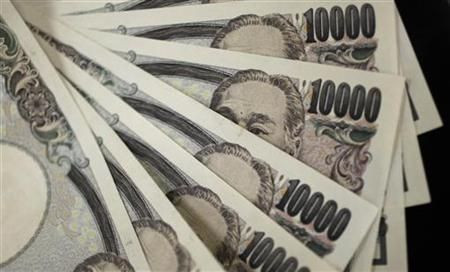Japan’s Retail Sales Decline 1.2% In October

Japan’s retail sales fell in October compared to those in the same month last year, indicating a faltering consumer spending which accounts for the majority of overall economic activity.
The data released Thursday by the Ministry of Economy, Trade and Industry shows that Japan’s retail sales, which measure the change in the total value of inflation-adjusted sales at the retail level, fell 1.2 percent in October compared to those in the same month a year earlier, down from a 0.4 percent rise in September. Analysts had expected a decrease of 0.7 percent.
This comes after Japan reported earlier this month that the country’s gross domestic product contracted in the third quarter compared to that in the previous quarter due to the soft global demand and the weakening domestic consumption in the world's third-largest economy.
According to the data released by the Cabinet Office, Japan’s GDP, which measures the annualized change in the inflation-adjusted value of all goods and services produced by the economy, shrank to 0.9 percent in the quarter ending Sept. 30, down from a 0.1 percent rise in the previous three months.
It was reported earlier this month that Japan’s industrial output declined in September compared to that in the previous month. The data released by the Ministry of Economy, Trade and Industry showed that Japan’s industrial production, which measures the change in the total inflation-adjusted value of output produced by manufacturers, mines and utilities, fell 4.1 percent in September compared to that in the previous month while it declined 4.1 percent in August.
Last month, it was reported that Japan’s manufacturing activity contracted in October to an 18-month low, increasing the concerns about the slowdown in the economic growth of the world's third-largest economy. The continued shrinking of the manufacturing activity would increase the likelihood of a sharp contraction in the economy.
Meanwhile, the Bank of Japan this month kept its key policy rate unchanged and refrained from announcing any monetary easing measures in spite of the political pressures to pursue aggressive stimulus steps for reviving the economic growth momentum.
Investors sense that more measures, other than the currently available stimulus, will be required to revive the economic condition weakened by the soft global demand and the stumbling domestic spending.
© Copyright IBTimes 2025. All rights reserved.





















